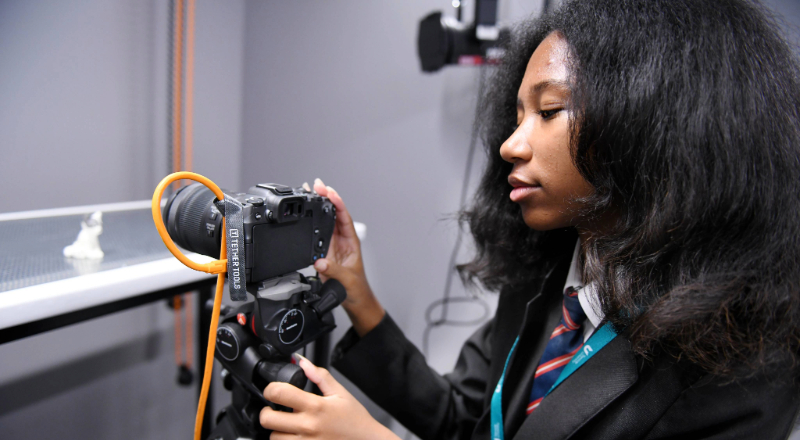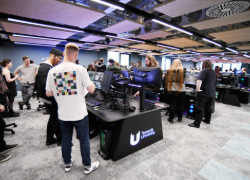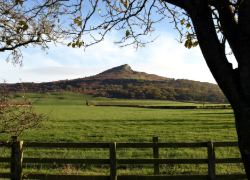Girls explore digital careers at state-of-the-art new Teesside University facility
Teesside University’s groundbreaking new £40m digital facility has hosted an inspiring event aimed at encouraging interest in tech careers among secondary school girls.

Students from Acklam Grange School and Macmillan Academy engaged with exciting, interactive workshops in robotics, animation, concept art, visual effects, games design and digital forensics in the new Digital Life building.
They programmed robots, created their own game controllers, produced a stop motion animation and took on the role of digital forensic investigators.
The girls also heard from academic experts on the range of study and career opportunities within these industries.
The event, titled Hello World, forms part of Teesside University’s wider work to promote gender diversity within science, technology, engineering and mathematics (STEM).
Digital Life is an innovative research, teaching and learning facility incorporating state-of-the-art smart laboratories, artificial intelligence and robotics suites, digital art studios and a multi-functional events space.
The building is a UK-wide skills and training asset that fast-tracks the Government’s drive to level up digital capability, powers the Tees Valley Investment Zone’s ambition to be a global creative-tech cluster, and advances the national skills agenda.
Through this investment, the University has brought to Teesside facilities which rival those seen in blue-chip tech firms with cybersecurity and smart labs, digital arts studios and one of the world's largest fully immersive simulation suites.
Sally, from Acklam Grange School, said: “I didn’t think computing could be this fun.
We were delighted to welcome schools and colleges to our brand-new Digital Life building.
“It’s been a really good day because it’s been really engaging and really fun.”
Evie, also from Acklam Grange School, added: “I really enjoyed the event. It’s made me like computing a lot more, because today has shown me I can actually do it.”
Also taking place at Digital Life was a digital arts and animation discovery day for prospective students.
Students from Wyke College, in Hull, took part in immersive, hands-on sessions led by industry-experienced academics.
They gained a practical insight into animation in the specialist stop motion studio and created game-ready assets using professional modelling and sculpting software.
Alongside this, teachers and careers advisers from post-16 colleges were invited to come and tour the new Digital Life facilities at Teesside University and see how they benefit students.
They were impressed by the cybersecurity control room, robotics and games laboratories, and digital art studios.
Professor Chrisina Jayne, Dean of the School of Computing, Engineering & Digital Technologies, said: “We were delighted to welcome schools and colleges to our brand-new Digital Life building.
“This impressive facility will support the Government’s ambition to level up digital skills and capability by enabling students to access state-of-the-art equipment, hands-on training and academic expertise.”
 Girls explore digital careers at state-of-the-art new
...
Girls explore digital careers at state-of-the-art new
... Teesside University start-ups Selected for prestigious
...
Teesside University start-ups Selected for prestigious
... Teesside University to create ‘green corridor’ in the North
...
Teesside University to create ‘green corridor’ in the North
...